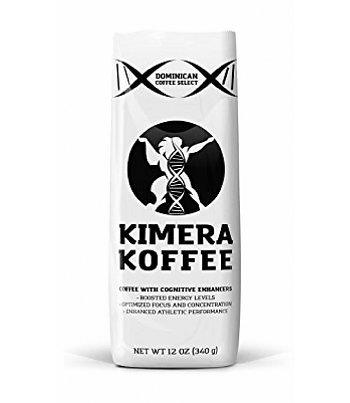Table of contents
- What are desiccated organ supplements?
- Benefits of beef organ supplements
- Who should eat animal organ supplements?
- Is animal organ supplement just as good as eating the raw organ?
- Why choose organs in a supplement form?
- How to choose the highest quality organ supplements
- Are liver supplements safe?
- The bottom line - are organ supplements good for you?
Organ meat supplements have become popular for enjoying the nutritious organs without having to cook or eat the real thing. Raw liver, kidney, heart, and other organs can be freeze-dried into powdered capsules that are tasteless, easy to swallow, and have high nutrient-density. That’s why many are choosing for example beef liver capsules rather than the real thing on their plates.
What are desiccated organ supplements?
Organ meats, also known as “offal”, are the consumable organs like liver, heart, brains, intestines, and even testicles of animals. The word usually excludes muscle. Some cultures consider organ meats as a taboo, while others use them as everyday food or even delicacies.
Most popular organ meats come from beef and lamb. The word “desiccated” means that they’re dried, using a gentle freeze-drying process. This transforms raw organs into a powder that can be encapsulated. Freeze-drying maintains many of the vitamins and minerals, unlike high-heat processing which damages the nutrients. Freeze-drying also reduces water weight, allowing you to receive many of the nutritional benefits in a small capsule which can be stored conveniently in room temperature for a longer period of time.
What are the benefits of beef organ supplements?
Organ meats are full of nutrients, and are often more nutritious than muscle meats. Most organ meats are good sources of vitamins and minerals, including B vitamins, iron, and zinc. A clear benefit of eating organ meats is that they support the same organs inside your body: for example, eating liver or supplementing with liver capsules gives you the nutrients that your liver also needs for functioning properly.
Beef Liver is a good source of:
- Vitamin A (as retinol)
- Vitamin B12
- Copper
- Vitamin B2 (riboflavin)
- Vitamin B5 (pantothenic acid)
- Vitamin B3 (niacin)
- Molybdenum
- All important liver-specific peptides, cofactors and enzymes
In addition, you get high quality and easily absorbed heme iron, vitamin B6, folate (the natural form of vitamin B9/B11) and choline. But more importantly, liver contains nutrients (in particular minerals) in the right ratios that increases bioavailability and drastically increases the body’s absorption rate.
Beef Kidney is rich in the following nutrients:
- Vitamin B2 (riboflavin)
- Vitamin B3 (niacin)
- Vitamin B5 (pantothenic acid)
- Vitamin B6
- Vitamin B9/B11 (folate)
- Vitamin B12
- Selenium
- Bio-available heme iron
- The enzyme diamine oxidase (DAO)
- Kidney specific peptides, cofactors and enzymes
Beef Heart contains the following nutrients:
- Coenzyme Q10 (CoQ10)
- Vitamin B12
- Vitamin B2 (Riboflavin)
- Vitamin B3 (Niacin)
- Vitamin B5 (Pantothenic acid)
- Copper
- Selenium
- Phosphorus
- Vitamin B6
- Zinc
- Iron (as heme iron)
- Collagen and elastin
- The amino acids glycine and proline
- Heart-specific peptides, enzymes and cofactors

Who should eat animal organ supplements?
Eating many different kinds of meats ensures you get a wide variety of macro and micro nutrients. Many of us consume too much of the traditional steak cuts which are rich in an amino acid called methionine. Studies have shown that animals who ingest lots of methionine die younger than those who don’t.
The primary source of nutrients should be a healthy, balanced diet. Organ meats act like a natural multivitamin for nutrients that are difficult to get from plants. Eating nose to tail will give you more glycine and less methionine, which will better take care of your bodily organs and functions.
In liver, iron, zinc and copper are better balanced than in muscle meat. Zinc and copper should be balanced in the diet to be absorbed in the right amounts. Too much of one leads to a deficiency in the other. Therefore, it’s beneficial to eat nose-to-tail and get as many different types of nutrients as possible.
Here are some benefits of the nutrients found in organ meats;
- Vitamin B12 contributes to energy levels
- Vitamin B12 supports the formation of red blood cells
- Vitamin B12 contributes to the health of the nervous system
- Vitamin B11 helps to provide resistance to stress
- Vitamins B2, B3, B11, B12 contribute to the reduction of fatigue
- Vitamin A is good for healthy skin
Is animal organ supplement just as good as eating the raw organ?
Many people don’t like the taste of liver and may find it unappealing to even think about putting brains or heart into your mouth or cooking them at home.
According to Nutrition Scientist Chris Masterjohn, PhD, organ supplements are especially good for people who do not eat organ meat at all. But even if you do eat organs every now and then, it may be beneficial to take small doses on a daily basis (10-20 grams of liver per day) rather than eating a whole lot at once. The reason is that the amount of Vitamin B12 stays more consistent in your body if you get a small dose of liver every day, rather than once a week, for example. This is where organ supplements come in.
Why choose organs in a supplement form?
- Better control over the quality (so 100% grass-fed and pasture-raised)
- No hassle with cooking
- Don’t need to eat the organs if you don’t like the taste
- Easy to get a wider range of different organ meats in your daily diet (liver, kidney, heart, etc.)
- More consistent supply (easier to take the capsules every day than to have the organs in your fridge on a regular basis)
- Freeze-drying preserves 97% of nutrients which is especially important for heat-sensitive minerals, vitamins and enzymes (traditional heat-drying preserves only 60%).
How do I choose the highest quality organ supplements?
The same rule applies to organ meats used in supplements: Quality over quantity. It is important to choose supplements made of high quality organ meat from animals that are raised in a pure, clean environment. Organs such as the liver and kidneys have a cleansing function and store some toxins. If the animal is eating toxins, those same harmful substances will transfer to your body. A healthy animal fed a natural diet will have the most nutritious organs with the least contaminants.
Use this checklist for quality:
- The animals should be surrounded by clean nature
- The animals should be grass-fed, pasture-raised
- The animals should not be fed any hormones, pesticides nor antibiotics
- The supplements should not contain any filler or binders
- The supplements should be gently freeze-dried to preserve the important nutrients
We recommend three organ meat supplements brands which have very high standards for the quality and welfare of the animals:
100% grass-fed beef organ supplements from certified organic cattle which roams freely on the Swedish landscapes, grazing lush green grass and herbs. The beef organ capsules are free from growth hormones, antibiotics and pesticides. Also zero allergens, additives and fillers. Tested in a third-party lab for moulds and heavy metals.
Sweden has very high standards for animal welfare. The farms undergo independent inspections every year to ensure that the animals live according to the very strict KRAV and EU organic regulations. KRAV is a Swedish quality mark that, in addition to organic origin, also has guidelines for animal welfare, sustainability and consideration of the surroundings and the environment.


BioMed
Biomed's nutritious Finnish reindeer organ powder comes from reindeer that grazed freely in Lapland. The gentle freeze-drying and manufacturing processes preserve vitamins and other nutrients in an active and easily absorbable form.
Paleo Powders
Organ supplements from grass-fed and grass-finished cattle from New Zealand. Freshly freeze-dried to retain all vitamins, minerals and cofactors.
Are liver supplements safe?
There are some concerns related to consuming organ meats;
Cholesterol - Liver is a source of dietary cholesterol. Many can eat high-cholesterol foods without problems, but some people need to be more cautious. Recently, studies have also shown that there’s actually little evidence that eating cholesterol impacts your blood cholesterol levels.
Vitamin A - It’s not good to get too much Vitamin A because your own liver cannot process the excess vitamin A quickly enough.
A safe and beneficial daily dosage is 6 capsules of the Nordic Kings Beef Liver supplement. If you are not otherwise eating a lot of organ meats, the general guidelines will keep you on the safe side.
The Bottom Line - Are Organ Supplements Good for You?
Our ancestors used to eat nose-to-tail, taking the most out of all organs and meats available. Organs are sometimes called natural multivitamins which help to use up the whole body of the animals so that nothing goes to waste. Organ meats offer many of the most bioavailable forms of key nutrients, in a complete package with co-enzymes and peptides that assist their bioavailability. Therefore, organ supplements are a great way of incorporating ancient best practices into our modern lives.











